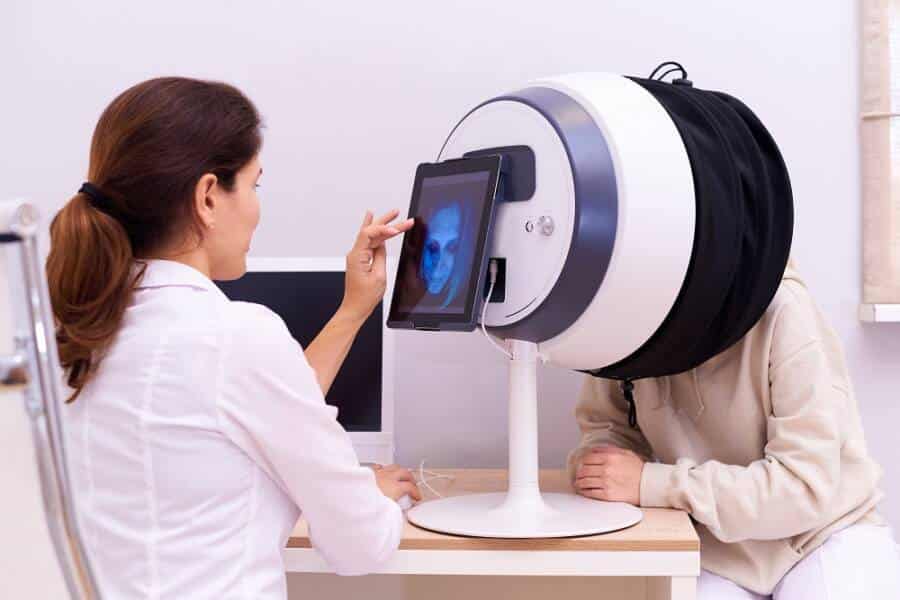If it is not efficiently controlled, diabetes can easily cause a host of complications that can greatly affect almost every organ in the body.
Some diabetes complications include heart disease, stroke, kidney disease, nerve damage, eye damage, digestive issues, erectile dysfunction, skin problems, infection, and dental issues.

Table of Contents
ToggleHeart disease
Heart disease is among the most common diabetes complications. In fact, in office visits, your doctor might perform different sets of tests to check for heart disease. This will help you prevent other serious heart-related issues.
With every visit, your health care provider might check your blood pressure by placing a cuff around your upper arm, which is tightened to measure the flow of blood through your arteries. They will also take a small blood sample from your arm. This is meant to check LDL cholesterol levels, as well as triglycerides.
A baseline EKG should be easily obtained, since it is part of a complete medical record. You can learn more useful information about personal risk factors you have for heart disease, including family history and whether or not you smoke, then work towards a proper prevention plan with weight loss, regular exercise, and stress management, as well as keeping your blood pressure, cholesterol, and triglycerides at standard levels.
Stroke
Some signs and symptoms of stroke also include sudden weakness on one side of the face or body, numbness in the face, arm, or leg, difficulty speaking, trouble seeing with both eyes, and dizziness. If you suffer from any of these symptoms, you should make an appointment with the doctor right away.
You could also be referred to a neurologist or other stroke specialist. We also advise you to find out more about the warning signs of stroke, and try to be as aware as possible of all the ways in which you can prevent this serious issue from happening to you.
Diabetic Nephropathy (kidney disease)
If you suffer from diabetes, urine testing should definitely be performed on a yearly basis. What you want is to watch for diabetic nephropathy, or kidney disease.
A baseline creatinine blood test should be easily done to establish your real kidney function. You might also have to be tested a bit more often, especially if you are likely to get kidney disease due to high blood pressure, heart disease, and even a family history of kidney failure.
Your doctor will also check a sample of your urine for albumin, an important blood protein that could easily end up in your pee, especially if your kidneys are damaged.
They might also take a sample of your blood to see if your glomerular filtration rate (GFR), an effective measure of how well your kidneys are performing their job of filtering waste in your blood.
Your health care provider could also check your blood pressure on a regular basis, especially since control of high blood pressure is so important in slowing kidney disease. Your reading should be less than 130/80.
Diabetic neuropathy (nerve damage)
As time goes by, diabetes could potentially cause nerve damage, producing symptoms of numbness, burning, and pain in your hands, feet, or legs. If your skin becomes numb, you could even notice small, untraceable wounds that could ultimately become health threats.
Check your feet and hands on a daily basis for redness, calluses, cracks, or even skin breakdown. If you notice any of the mentioned symptoms before your next scheduled visit, make sure you notify your health care provider right away.
To check for such problems, your doctor will fully examine your feet at least once a year. They will tap on them with a tool that’s very similar to a nylon hairbrush bristle or even prick your feet with a very small needle. If you don’t really feel it, you might suffer from nerve damage.

Diabetic retinopathy (eye damage)
To effectively protect your vision, all people who suffer from diabetes should definitely make an appointment with an ophthalmologist (an eye doctor) at least every year. As part of the aforementioned eye exam, the doctor could dilate your eyes to check the back of the eye (the retina) and establish whether or not the diabetes is causing the damage in question.
For this particular test, your doctor puts drops into your eyes that will temporarily make the pupils get bigger. Then, they will use a unique, magnifying lens to check the retina and optic nerves. They will also test your eye pressure, side vision, and distance vision.
If you’re scared, you should know that the test is painless. However, since you will be sensitive to light and your vision will still be blurry for a couple of hours, it’s still a good idea to bring sunglasses and get someone else to drive you home.
For those people who suffer from type 1 diabetes, these annual exams should definitely start within three to five years of diabetes, as soon as the patient is age 10 or older. People with type 2 diabetes should also have their first eye exam as soon as they get diagnosed.
Those with eye complications might have to check with their ophthalmologist more frequently. Women with diabetes who become pregnant should have a comprehensive eye exam during the first trimester, then a close follow-up with an eye doctor during their pregnancy.
Gastroparesis
Diabetes can also increase your risk of gastroparesis. And with it, the nerves to the stomach are slowly damaged until they stop working the right way.
This causes the stomach to take way too long to empty its contents, making it difficult to manage blood glucose levels. Sometimes, changing your diet can help. There are some types of medications and treatments for gastroparesis.
You might have to try one or more of these tests:
- upper gastrointestinal endoscopy
- upper GI series
- gastric emptying scintigraphy
- SmartPill
- gastric emptying breath test
The test generally involves eating and drinking something or even getting an imaging test (such as an X-ray) to aid doctors in checking whether or not your digestive system works well.
You should also discuss with your doctor ways to prevent diabetes complications. Ask for information on early warning signs so you can seek the best treatments when they’re most effective.
Erectile dysfunction
Diabetes can increase the chance of developing erectile dysfunction, also known as impotence. For some men, adopting a proper, healthy lifestyle, like quitting smoking, exercising regularly, and reducing stress, could be all it takes to fix it.
It’s also important to discuss with your health care provider about your erectile dysfunction, especially since your doctor can recommend a series of remedies, such as medications, a vacuum constriction device (VCD), and other erectile dysfunction aids. All of these can help.
Skin issues
You would be surprised to know that a third of people with diabetes might suffer from a skin condition related to their disease at some time in their lives. High levels of glucose in the blood can offer a wonderful breeding ground for bacteria and fungi, reducing the body’s capacity to heal itself.
Luckily, most skin conditions can be efficiently prevented and treated if caught on time. If your skin is not cared for properly with type 2 diabetes, a minor skin condition can easily turn into a serious issue, with potentially severe consequences.
If you found this article useful, we also recommend checking: If You Drink Coffee Every Day, Don’t Be Shocked When THIS Happens to You!





